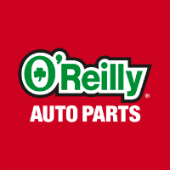-
Welcome to Auto Parts Forum
Whether you are a veteran automotive parts guru or just someone looking for some quick auto parts advice, register today and start a new topic in our forum. Registration is free and you can even sign up with social network platforms such as Facebook, X, and LinkedIn.
GM V6/V8 Central Port Full Unit Injector Installation
-
Similar Content
-
- 0 replies
- 91 views
-
- 0 replies
- 54 views
-
- 0 replies
- 63 views
-
- 0 replies
- 49 views
-
- 0 replies
- 52 views
-
-
Similar Topics
-
By Counterman
MAHLE showcased its full-service portfolio of products at AAPEX. The company said it aims to position itself as a “one-stop shop” for technicians, shop owners and drivers. Key offerings highlighted at this year’s AAPEX show included
link hidden, please login to viewgaskets, engine components, filters and thermal management solutions as well as the company’s battery diagnostic systems, A/C units and latest shop equipment. “Our goal is to further expand MAHLE Aftermarket’s leading role in the global market with attractive offers for repair shops and trade,” said Eduardo Spilla, general manager,
link hidden, please login to viewAftermarket North America. “We are particularly focused on electrification, digitalization, and sustainability in order to help create the future of transportation and do our part in providing high-quality solutions to customers around the world.” More information on MAHLE can be found online or by contacting MAHLE local sales representatives.
The post
link hidden, please login to view appeared first on link hidden, please login to view.
link hidden, please login to view 
-
By APF
The financial impact of a strike may reach as high as $5 billion daily, as estimated by JPMorgan Chase, potentially disrupting the supply chain for a wide range of products, including automobiles and cardboard. Consider a large cargo vessel laden with automotive components such as alternators, radiators, and batteries.
The East Coast of the United States is home to some of the busiest and most vital ports in the country. Major ports like those in New York, New Jersey, and Savannah play critical roles in international trade, acting as gateways for goods, including auto parts, flowing between the U.S. and global markets. In the event of a strike at these ports, the entire supply chain for industries dependent on imports and exports—especially the automotive industry—can be severely disrupted.
1. Disruption of Supply Chains
The auto industry is highly dependent on just-in-time (JIT) manufacturing. Auto parts are often sourced from multiple countries, and timely delivery is crucial to ensure assembly lines are running smoothly. A strike at East Coast ports can cause significant delays in the importation of essential components, such as engines, transmissions, and electronic parts.
Many car manufacturers and suppliers utilize East Coast ports to transport components from Europe, Asia, and Latin America. A strike could create bottlenecks, leading to a backlog of containers waiting to be unloaded, processed, or shipped to distribution centers. The longer the strike, the more the backlog grows, making it even more challenging for manufacturers to receive the necessary parts on time.
2. Increased Costs for Manufacturers
When auto parts can't be delivered due to port strikes, manufacturers may need to resort to costly alternatives to meet their needs. These alternatives might include:
Air Freight: Transporting parts by air is much faster than shipping via sea, but it's also significantly more expensive. For parts that are urgently needed to avoid assembly line shutdowns, manufacturers may opt to pay the premium, which can erode profit margins.
Diversion to Other Ports: During a strike, companies might attempt to reroute shipments to alternative ports, such as those on the Gulf Coast or the West Coast. However, this introduces additional transportation costs, delays, and logistical challenges.
These increased costs ultimately get passed down the supply chain, affecting everyone from manufacturers to end consumers.
3. Production Delays and Shutdowns
A prolonged port strike could cause automakers to slow or halt production entirely if they can’t source the necessary parts. For an industry reliant on smooth operations and just-in-time inventory, even a short-term disruption can have ripple effects across the entire production line. Automakers are often forced to make difficult decisions about which vehicles to prioritize for production and may shift their focus to models that require fewer or more readily available components.
For suppliers, the strike could also result in inventory shortages, creating a domino effect in which downstream production is halted or delayed. This can lead to shortages of vehicles available for sale, which could push up prices for both new and used vehicles.
4. Impact on Retailers and Consumers
Retailers and consumers will also feel the effects of a port strike. As auto parts become scarcer and production slows, dealers may have less inventory to offer customers. Consumers looking for specific car models or parts for repairs and maintenance could face long wait times.
Furthermore, the increased transportation costs, higher prices of parts, and potential tariffs (if auto parts need to be sourced from more expensive regions due to the strike) may lead to price hikes for both new vehicles and aftermarket parts. Repair shops could pass these higher costs on to customers, increasing the overall cost of vehicle ownership.
5. Broader Economic Impacts
The automotive industry is a significant driver of the U.S. economy, contributing billions in revenue and employing millions of people. A port strike on the East Coast could lead to layoffs or reduced hours for workers in manufacturing plants, transportation, and logistics. This ripple effect can harm local economies, especially in areas dependent on the auto industry.
Moreover, as car production and sales slow down, other industries linked to the automotive sector, such as steel, electronics, and chemicals, may also experience reduced demand, leading to further economic strain.
6. Mitigation Strategies for the Future
To mitigate the effects of potential port strikes, many companies in the auto industry have begun to explore alternative solutions. These strategies include:
Diversifying Ports: Relying on a single port or region for auto parts can leave manufacturers vulnerable to strikes or other disruptions. By diversifying their port usage—utilizing West Coast or Gulf Coast ports—manufacturers can reduce the risk of total supply chain stoppages.
Strategic Stockpiling: Some manufacturers are considering stockpiling critical parts to ensure they have a buffer during times of disruption. While this is counter to the just-in-time philosophy, it can provide some security against short-term disruptions like strikes.
Strengthening Domestic Supply Chains: The COVID-19 pandemic, combined with other global trade disruptions, has led many manufacturers to rethink their dependence on global supply chains. Investing in domestic production of key auto parts could reduce reliance on international shipments and lessen the impact of future port strikes.
Conclusion
An East Coast port strike can have a far-reaching impact on the auto parts industry, causing supply chain disruptions, increased costs, production delays, and higher prices for consumers. The extent of the damage depends on the duration of the strike and the preparedness of manufacturers and suppliers. However, by implementing diversification strategies and strengthening supply chains, the auto industry can mitigate some of the risks associated with such events in the future.






Recommended Posts
Create an account or sign in to comment
You need to be a member in order to leave a comment
Create an account
Sign up for a new account in our community. It's easy!
Register a new accountSign in
Already have an account? Sign in here.
Sign In Now